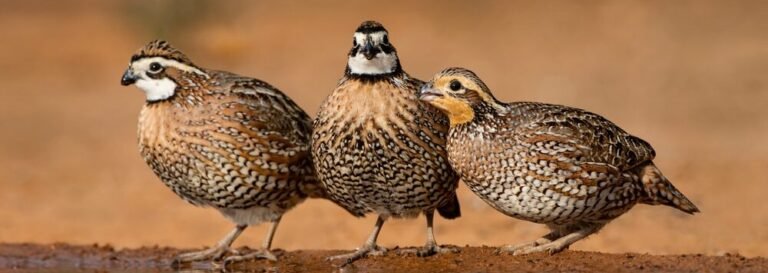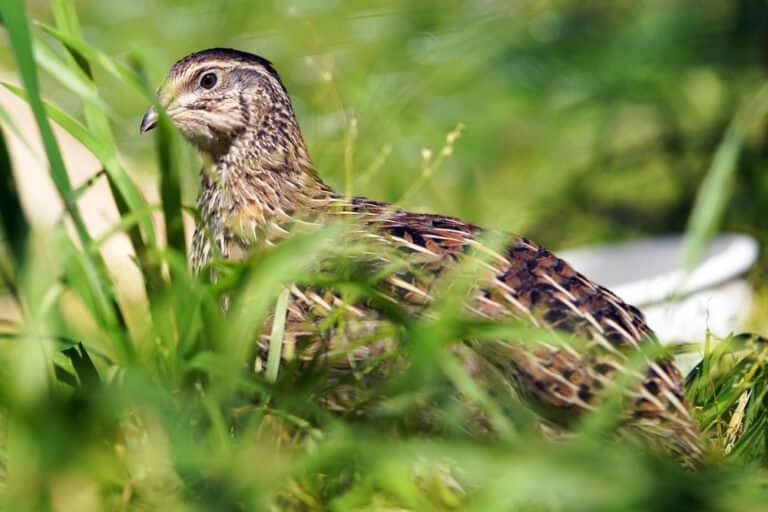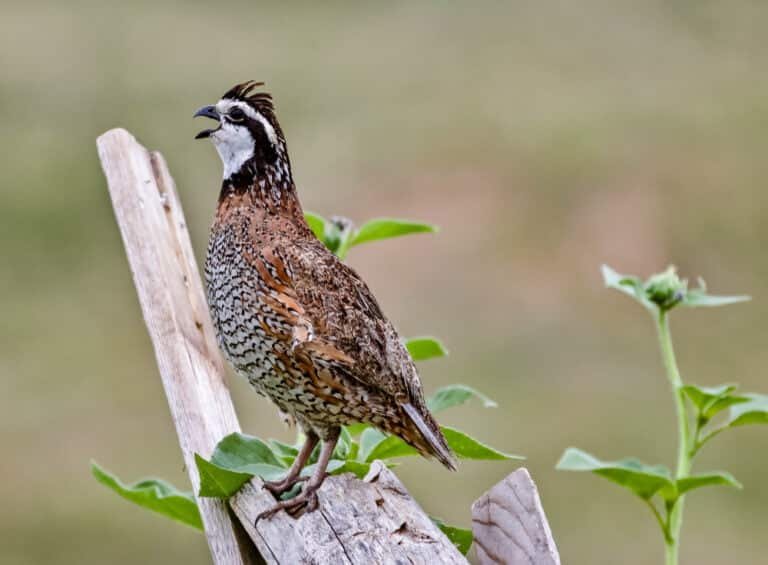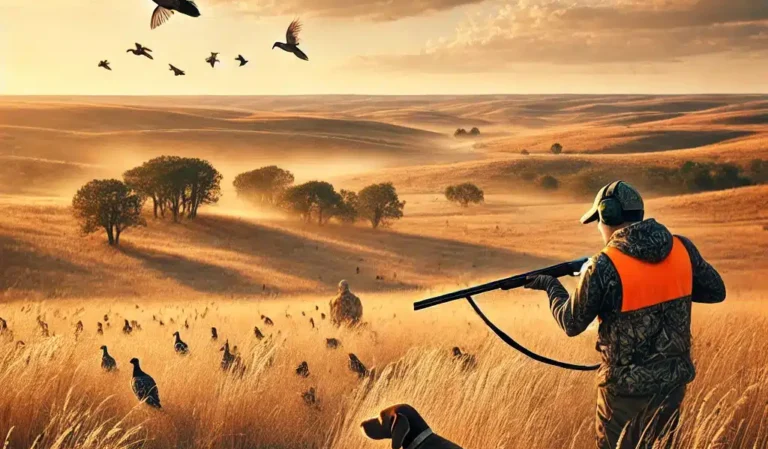The 5 Best Quail Hunting Dogs: Your Perfect Friend Finder
Picture this: You’re out in the field, the crisp autumn air filling your lungs. Suddenly, your trusty canine companion freezes, nose pointing straight ahead. You know what’s coming – a covey of quail is about to burst into the air. This is the magic of hunting with the best quail hunting dogs, and today, we’re going to explore which breeds excel at this exciting sport.

Why Use a Dog for Quail Hunting?
Before we dive into the breeds, let’s talk about why a dog is so crucial for quail hunting:
- Keen noses: Dogs can smell quail from a distance, leading you right to them.
- Flushing ability: A good dog will flush out hiding quail, giving you the perfect shot.
- Retrieval skills: Your dog can find and return the quail after the shot, even in thick cover.
- Companionship: Let’s face it, a dog makes any hunting trip more enjoyable!
Top 5 Best Quail Hunting Dogs
1. English Pointer
- Exceptional Nose: Their keen sense of smell allows them to detect quail scent from impressive distances, even in challenging conditions.
- Natural Pointing Instinct: Pointers are born with a strong inclination to point, making them ideal for locating quail without flushing them prematurely.
- Stamina and Speed: These dogs can cover vast areas tirelessly, thanks to their muscular build and high energy levels.

- Trainability: Intelligent and eager to please, English Pointers respond well to training, making them suitable for both novice and experienced hunters.
- Size and Coat: Standing 23-28 inches tall and weighing 45-75 pounds, their short, dense coat requires minimal grooming and helps them navigate through thick brush.
2. English Setter
Known for their beautiful, flowing coats, English Setters are more than just good looks:

- Excellent Scenting Ability: Their long, pendulous ears help waft scents to their nose, enhancing their already keen sense of smell.
- Graceful Hunting Style: Setters work at a moderate pace, thoroughly covering ground with a smooth, elegant gait.
- Versatile in Various Terrains: Equally at home in open fields or wooded areas, they adapt well to different hunting environments.
- Strong Retrieving Instinct: While primarily known for pointing, many English Setters are also skilled retrievers.
- Gentle Nature: Their calm, friendly temperament makes them excellent family dogs when not in the field.
- Size and Coat: Standing 24-27 inches tall and weighing 65-80 pounds, their long, silky coat requires regular grooming but provides good protection in rough cover.
3. Brittany
Don’t let their smaller size fool you – Brittanys are powerhouses in the field:
- High Energy and Enthusiasm: These dogs have a seemingly endless supply of energy, perfect for long days of hunting.
- Dual-Purpose Skills: Brittanys excel at both pointing and retrieving, making them versatile hunting companions.
- Compact Size: Standing 17.5-20.5 inches and weighing 30-40 pounds, they’re ideal for hunters who prefer a smaller dog or have limited space at home.

- Intelligence: Highly trainable and eager to please, Brittanys quickly pick up on commands and hunting strategies.
- Close-Working Style: They tend to hunt closer to the gun than some other pointing breeds, which some hunters prefer.
- Coat: Their medium-length coat is relatively low-maintenance but provides good protection in the field.
4. German Shorthaired Pointer (GSP)
Versatile and athletic, the German Shorthaired Pointer is a jack-of-all-trades:

- Exceptional Versatility: GSPs can point, flush, and retrieve, making them adaptable to various hunting situations.
- Endurance: Their muscular build and high energy levels allow them to hunt tirelessly all day.
- Strong Swimming Ability: Unlike some pointing breeds, GSPs are excellent swimmers, useful for water retrievals.
- Keen Intelligence: They’re quick learners and respond well to training, though they can be independent thinkers.
- Affectionate Nature: GSPs form strong bonds with their families, making them great companions both in and out of the field.
- Size and Coat: Standing 21-25 inches and weighing 45-70 pounds, their short, dense coat is easy to maintain and provides good protection in rough cover.
5. Vizsla
These “Velcro dogs” are known for their close working style:
- Natural Pointers and Retrievers: Vizslas have strong instincts for both pointing and retrieving, often developing these skills with minimal training.
- Excellent Nose: They have a highly developed sense of smell, crucial for locating quail in dense cover.
- Close-Working Style: Vizslas tend to stay close to their hunters.
- Speed and Agility: Their lean, muscular build allows them to move quickly and gracefully through various terrains.

- Affectionate and Loyal: Known for forming strong bonds with their owners, Vizslas crave human companionship.
- Low-Maintenance Coat: Their short, smooth coat requires minimal grooming and doesn’t tend to pick up burrs and thorns in the field.
- Size: Standing 21-24 inches and weighing 44-60 pounds, they’re a medium-sized breed that’s robust enough for field work but not too large for home life.
Choosing Your Quail Hunting Partner
Selecting the right quail hunting dog is a big decision that will impact your hunting experiences for years to come. Here’s a comprehensive guide to help you make the best choice:
1. Consider Your Hunting Style
- Range: Do you prefer a dog that works close or one that covers a lot of ground? English Pointers tend to range wider, while Brittanys and Vizslas often work closer.
- Pace: Some hunters prefer a faster-working dog like a German Shorthaired Pointer, while others might opt for the more methodical pace of an English Setter.
- Pointing vs. Flushing: While all the breeds mentioned are pointing dogs, some, like the German Shorthaired Pointer, are more versatile and can be trained to flush as well.
2. Evaluate the Terrain You Hunt
- Open Fields: Breeds like the English Pointer excel in wide-open spaces where they can use their speed and far-reaching point.
- Thick Cover: Dogs with protective coats like the English Setter might be better suited for areas with dense brush.
- Mixed Terrain: Versatile breeds like the German Shorthaired Pointer adapt well to various environments.
- Water Presence: If your hunting grounds include wetlands, consider water-loving breeds like the German Shorthaired Pointer.
3. Assess Your Physical Activity Level
- High Energy: Breeds like the Brittany and Vizsla require a lot of exercise, even outside of hunting season.
- Moderate Energy: English Setters tend to have a more laid-back personality at home.
- Exercise Commitment: Be honest about how much time you can dedicate to exercising your dog daily.
4. Consider Your Living Situation
- Space at Home: Larger breeds like the English Pointer might not be suitable for apartment living.
- Yard Size: High-energy breeds will benefit from a large, fenced yard to run in.
- Family Composition: Some breeds, like the Brittany and Vizsla, are known for being great with children.
5. Grooming Requirements
- Low Maintenance: Short-haired breeds like the Vizsla and German Shorthaired Pointer require minimal grooming.
- Regular Grooming: The flowing coat of an English Setter needs regular brushing and occasional trimming.
- Shedding: All dogs shed, but some, like the Brittany, tend to shed less than others.
6. Training Commitment
- Ease of Training: Breeds like the Brittany and Vizsla are known for their eagerness to please and trainability.
- Independence: Some breeds, like the English Pointer, can have an independent streak and may require more patience in training.
- Time Investment: Consider how much time you can dedicate to training, both for basic obedience and hunting skills.
7. Climate Considerations
- Cold Weather: Breeds with thicker coats, like the English Setter, fare better in colder climates.
- Hot Weather: Short-haired breeds like the Vizsla may be more comfortable in warmer regions.
8. Health and Longevity
- Breed-Specific Health Issues: Research common health problems in the breeds you’re considering.
- Lifespan: Consider the typical lifespan of the breed and how that fits with your long-term plans.
9. Cost Considerations
- Purchase Price: Purebred hunting dogs from quality lines can be expensive.
- Ongoing Costs: Factor in food, veterinary care, training, and equipment costs.
10. Personal Connection
- Meet the Breed: If possible, spend time with the breeds you’re considering before making a decision.
- Individual Personality: Remember that each dog, regardless of breed, has its own unique personality.
While breed characteristics are important, individual dogs within a breed can vary. It’s crucial to meet the dog, and if possible, its parents, before making your final decision. Also, consider working with a reputable breeder who specializes in hunting dogs, or look into hunting dog rescue organizations for a chance to give a skilled adult dog a new home.
Choosing the right quail hunting dog is about finding the perfect balance between your lifestyle, hunting needs, and the dog’s characteristics. Take your time, do your research, and you’ll find a hunting partner that will bring you joy both in the field and at home for years to come.

Wrapping Up
Whether you choose the classic English Pointer, the versatile German Shorthaired Pointer, or any of the other excellent breeds we’ve discussed, the best quail hunting dogs will not only improve your hunting success but also become your faithful companion in the field and at home.
Each breed brings its unique strengths to the hunt, so consider your specific needs and preferences when making your choice. Happy hunting, and may your hunts be filled with plenty of birds and joyful barks!






